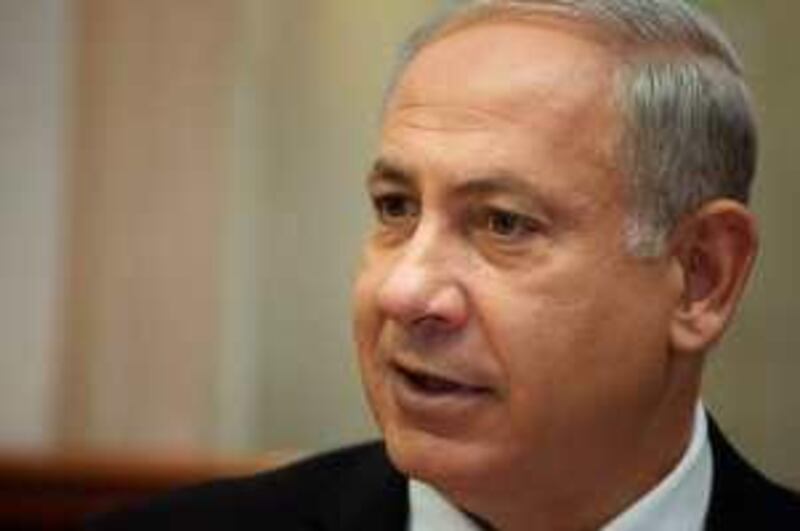JERUSALEM // The apparent breakthrough nuclear deal Iran agreed to yesterday was met with widespread scepticism in Israel. Iran, Turkey and Brazil signed an agreement over a nuclear fuel swap intended to allay international concern over the Islamic republic's atomic ambitions and avert fresh sanctions on Tehran.
In Israel, officials yesterday were still examining the draft agreement and had yet to form an official response. But one official told the Agence France-Presse news agency, on condition of anonymity, that Iran had "manipulated" Turkey and Brazil, by "pretending to accept the agreement". Israel has identified Iran as an existential threat, and the Iranian nuclear programme remains Israel's highest foreign policy priority, trumping even its relations with the Palestinians and the future of the Occupied Territories, which is often dealt with as a domestic issue.
As late as last week, Benjamin Netanyahu, the Israeli prime minister, accused Iran of trying to provoke a war between Israel and Syria. From Mr Netanyahu on down, Israeli officials have consistently advocated a hard line on Iran, and although concerns of an Israeli military strike on Iranian nuclear targets have somewhat dissipated in recent months, the option remains on the table. On Sunday, retired army officers and diplomats, including Dan Kurtzer, a former US ambassador to Israel, took part in a war-games exercise that assumed a nuclear-armed Iran. Apparently uneasy with the exercise, the Israeli government sent no observers to the event, which concluded that Israel would be best off holding out for international diplomacy and counting on Iranian reluctance to use nuclear weapons in any confrontation.
Nevertheless, the exercise shows how important the Iran issue is seen in Israel. However, with details of the Iran-Turkey-Brazil deal still sketchy, independent experts were yesterday cautious. Ephraim Asculai, who specialises in nuclear and arms control policy at the Institute of National Security Studies in Tel Aviv, said he would wait to lean more details before commenting. "The importance here is in the detail. What has been reported so far simply means nothing."
But Yossi Alpher, an Israeli analyst in Tel Aviv, and a former Iran specialist with Mossad, said he was "highly suspicious of Iranian motives". "Iran has zigzagged diplomatically for so long, in so many ways, and is very good at doing it, that there's a sense that this is just another 'zig'." Iran had agreed in principle to a similar proposal hammered out by the United States, Russia and France in October, but then sought changes to the agreement.
Mr Alpher said there was no reason to believe that Iran would not now similarly backtrack, and said he thought it likely that Tehran was simply playing for time in a bid to avoid further international sanctions. "This 'breakthrough', if it can be called such, is going to give Iran several months, and it won't be until then that we will know just how serious and real this is." If the agreement were followed through, Mr Alpher continued, it would be a step in the right direction, "but only a step".
"All it does is give the international community and Iran some breathing space for a year or so in which to try and work out some more permanent arrangement. And only time will tell." okarmi@thenational.ae





